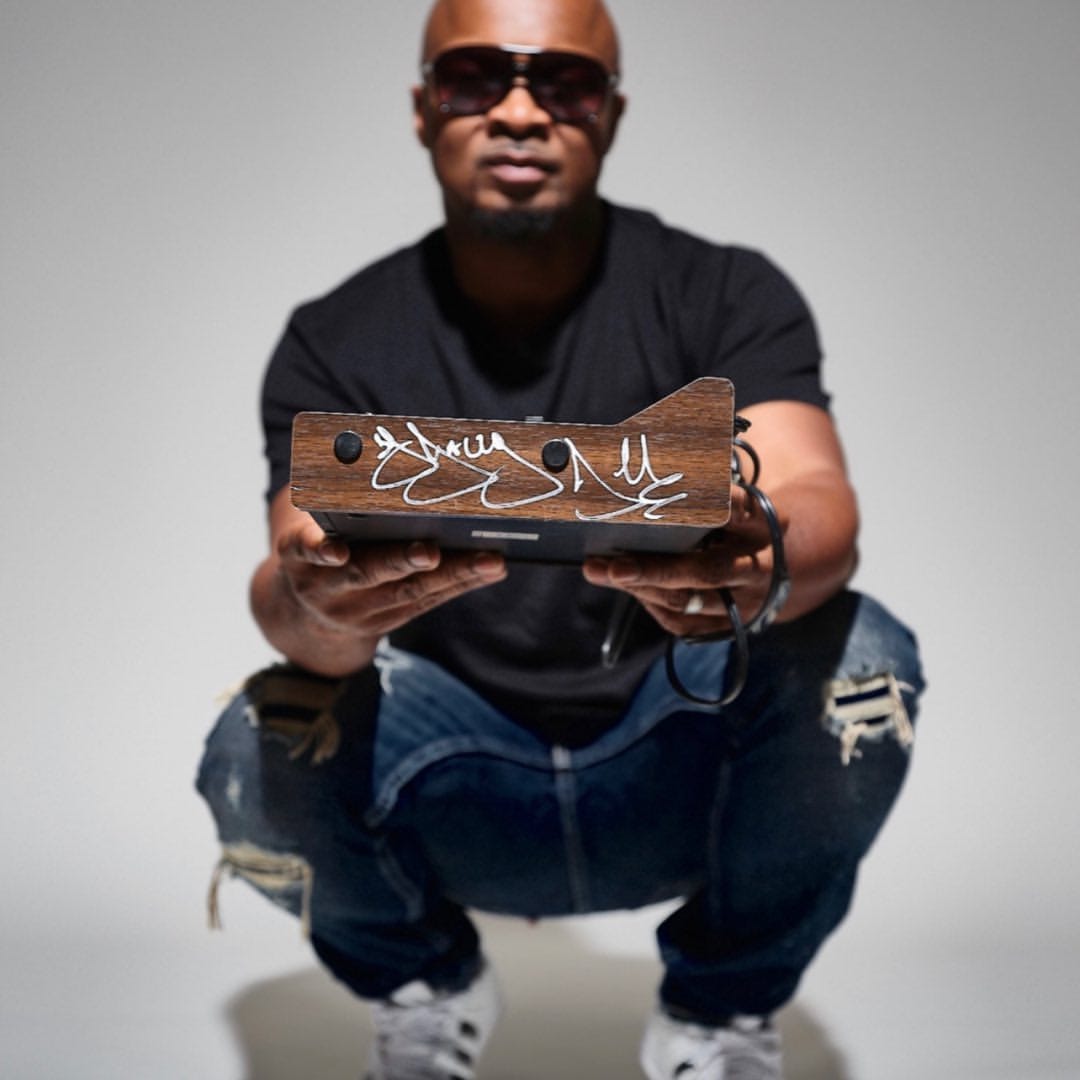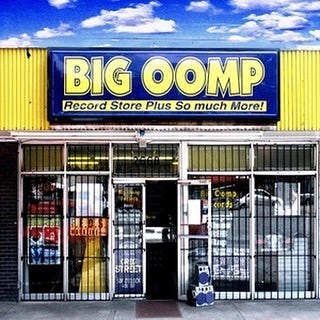DJ Jelly is One of Atlanta's Last Remaining Time Capsules.
Ever since DJ Jelly came on the scene in the early 90s, he's made it his business to represent the city and push it to the top.
The more and more our country changes, the more and more we look for a few reminders of what we loved from its past. People like DJ Jelly, who have been around for most of the music’s major moments, become more vital as the world changes. Ever since he came to Atlanta thirty-three years ago, he’s made it his mission to highlight the beauty of Atlanta and along the way blazed a path for its future talents.
His work in Atlanta’s first indie rap record label Big Oomp helped propel some of its native talents to the front. His presence on Atlanta’s first rap radio station helped break artists like OutKast and forced the industry to embrace the city’s rap scene and his musical pedigree has allowed him to travel the world spreading Atlanta’s sound. DJ Jelly is one of the city’s largest libraries of music knowledge, but in his eyes, his story is Atlanta’s story.
Origin
DJ Jelly, born Jonathan Jackson in the University City section of St. Louis, Missouri, grew up like most children in the 70s who were influenced heavily by the growing rap scene. Artists like LL Cool J and groups like Grandmaster Flash and the Furious Five, Run DMC, and the Beastie Boys lit the flame inside of him, and in particular LL Cool J’s “I’m Bad” gave Jonathan the inspiration for his DJ name.
From childhood to his teenage years, Jelly expressed himself creatively, embracing his love for music and DJing while also dabbling in other creative ventures such as drawing and painting. But it wasn’t until he met his first mentor, DJ Kutmaster K, that he learned how to DJ and began pursuing music seriously.
“He gave me the definition of what a DJ is and what a DJ does,” says Jelly.
Jelly credits Kutmaster K with showing him the “technical, creative and business” aspects of the business.
Jelly made a name for himself in St Louis, rocking house parties, but Atlanta’s growing music scene caught his attention. After reading about Bobby Brown moving to Atlanta in Essence Magazine, Jelly moved to Atlanta in 1989, attending college at what we now know as the Savannah College of Art and Design or SCAD.
“I was like that’s where I’m heading to. That sounds like an opportunity,” says Jelly.
Soon after arriving in Atlanta, Jelly maneuvered his way into working for Bobby Brown’s studio, serving as an intern much in the way a young Puffy Combs did with Uptown Records. His time was short, but in the end, Jelly leveraged the position and built connections.
“I came to Georgia strictly to network. The owner told me to try something else, but ironically a week after they fired me, (DC) of Tag Team) called me and said to come in,” says Jelly.
Magic City
After leaving Bobby Brown’s studio, Jelly got an important job working at Magic City as one of its DJs. Being in one of the city’s biggest strip clubs allowed Jelly the chance to learn more about the city’s music and network with established and upcoming artists at the same time. Jelly refers to his time there as his “college education”.
Jelly’s work on the music scene in the 90s put him right in the middle of the city’s growing rap scene which included Atlanta’s first street rap group, the Hard Boyz, as well as female rap groups like Da Kaperz, out of which Rasheeda would come from.
“You can’t not include people like them. I interviewed them for Oomp Camp TV. They are all a part of what made people excited about coming to Atlanta. It’s part of the whole cookup. The Hard Boys was one of the hardest groups ever from Atlanta beside Hitman Sammy Sam,” says Jelly.
During that time, Jelly juggled his college career and also worked at both Magic City and Peppermint Records store. Word of mouth spread and it wasn’t long before Jelly became known across the city and began working at all the major clubs in the city including Club Nikki’s, Jazzy T’s, The Bounce, 559 and more. His presence in the clubs, record stores, and later the radio helped him channel all the magic of the city and gave him the influence he needed to help elevate the waves of rap that followed the bass scene.
But a chance meeting in 1990 with Korey Roberson proved even more influential to both men’s careers. DJ Jelly, who worked with MC Assault and Freddie B, partnered with Big Oomp, and over the course of the following years built the Big Oomp empire brick by brick using the formula he saw at Peppermint Records.
”While working at Peppermint, I met Eazy E, Guru, Swizz Beatz. He brought me early DMX tapes and told me to support him. This is like 93. Mary J. Blige. That set the precedent for how I wanted to approach our own record stores,” says Jelly.
Jelly’s time at Peppermint gave him the inspiration and blueprint for how Big Oomp Records would approach selling music, a concept he refers to as a “Hip-Hop Starbucks”.
Big Oomp Era
Building on the blueprint of Edward J and the J Team, DJ Jelly, Freddie B and MC Assault elevated the brand, pioneering the rap mashups, and focusing on creating an authentic rap mixtape experience for GA. Over time, the record stores grew into an empire that involved a record label, live television show and more, but to Jelly, the strategic alliance of himself, Oomp, and MC Assault made it all happen.
“MC Assault was the guy who cranked us all up. The combination of MC Assault, Oomp and Jelly are no different than what Rocafella was,” says Jelly.
Jelly’s work in the clubs helped Big Oomp Records and its artists break through the club barriers, but his work with V103 in 1993 and later on Hot 107.9 with the 5 O Clock Traffic Jam proved to be the most influential.
Before 1995, Atlanta didn’t have a radio station in the city dedicated purely to making rap. Beyond that, the city had to compete with DJs who put a premium on East and West Coast music. Jelly’s decision to play OutKast’s “Elevators(Me and You)” song on V103 helped enlarge OutKast’s audience. Years later the 5 O Clock Traffic Jam became the first Atlanta rap radio show. The decision led to a fruitful partnership between the two and over the years he would serve as Goodie Mob’s tour DJ. Jelly once again stood in the middle of Atlanta history being present when some of their biggest records were made and also breaking them.
DJ Jelly’s work with Big Oomp helped make the label become a staple in the city. The perfect storm of Freaknik and their connections not only increased their power but also introduced artists like Lil Jon and the Eastside Boyz to a national audience. One of the most influential artists Jelly got to work with was Oomp’s artist, Hitman Sammy Sam.
Sam’s 1997 album, Last Man Standing, which included the singles, “Riding Wit Some Killaz", and “Intoxicated” helped break through the indie Atlanta radio barrier, and in Jelly’s eyes, represents one of the most important rap records in the city.
“Intoxicated may be one of my top five records in the city,” says Jelly.
Building on his generational impact, Jelly brought two more gems to Oomp’s label, Baby D, and DJ Montay. Baby D was a teenager at the time, but in Jelly’s words, “was persistent and relentless”. From there, Jelly gave him a chance, placing him on one of his tapes. Baby D from there became one of Big Oomp Records’ biggest artists, dropping the seminal record “Eastside vs Westside” featuring Lil C.
“Baby D to me- when we talk about Atlanta culture, he was really that dude. Before the Migos, Baby D embodied that. Baby D was that then, says Jelly”
In the case of DJ Montay, B-Reel of Intoxicated and Big Oomp’s sister connected Montay with Jelly who gave him an opportunity to prove himself. That chance extended into a partnership and acceptance in the Southern Style DJs collective, which is made up of MC Assault, Jelly, Montay and DJ Superblue.
“I was that person that brought talent to the fold. Montay was on it and he was hungry. You had that whole little young crew under us, Baby D, Lil C, and Montay. We started building on their talent, says Jelly.
Over time, DJ Jelly and the Atlanta sound travelled worldwide, landing in Asia. For Jelly the moment was full circle, seeing the music he’s loved being appreciated globally. In his words, it was humbling seeing them go from “MLK to Korea”.
Jelly’s impact on Atlanta spans several decades and touches more artists, producers, disc jockeys, and other tastemakers than we can name. But ultimately Jelly only wants Atlanta to be protected and respected.
“Basically, we want the respect for pioneering the sound of Atlanta hip-hop. We brought the sound to the world. You can’t deny it. You can’t be anywhere and not give respect. It should never be a couple of words.






